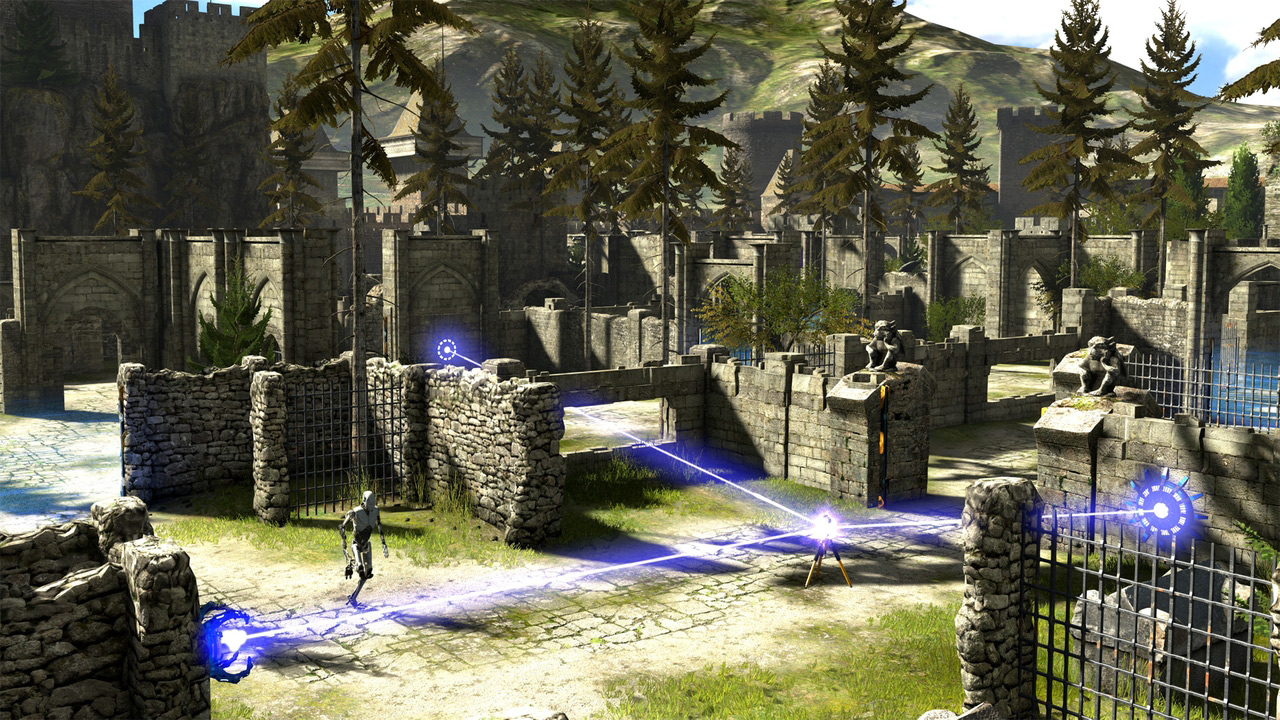
Its meat is in logs, excerpts, e-mails and interactive conversations that you extract from DOS prompts, records that touch on everything from the day-to-day running of a scientific facility to literature and, particularly, philosophy. There is a surprisingly intricate story being told, here, and its substance is only gestured at by that booming voice in the heavens.

Considerations about the meaning of personhood, apocalypse, machine intelligence and the ramifications of the Biblical Fall of man are spun through the game via text-dispensing terminals.

The other half of The Talos Principle is found in its loftier ideas. Framerate is uncapped and I achieved around 90fps on average with everything turned up to max. You can switch to a third person view, alter the aspect ration, and even alter the colour balance and contrast of the game through a series of filters. The Talos Principle gives you an impressive amount of control over how the game looks and feels.

Graphics options Field of view (60-120), graphics API, V-sync, triple buffering, CPU speed, GPU speed, GPU memory, colour options, letterboxing aspect ratio, HUD scale. Reviewed on Intel Core i5 2500K, 16GB RAM, Nvidia GeForce GTX 970


 0 kommentar(er)
0 kommentar(er)
